
Find Help
More Items From Ergsy search
-

What initiatives are being taken to educate youth about the risks of vaping?
Relevance: 100%
-
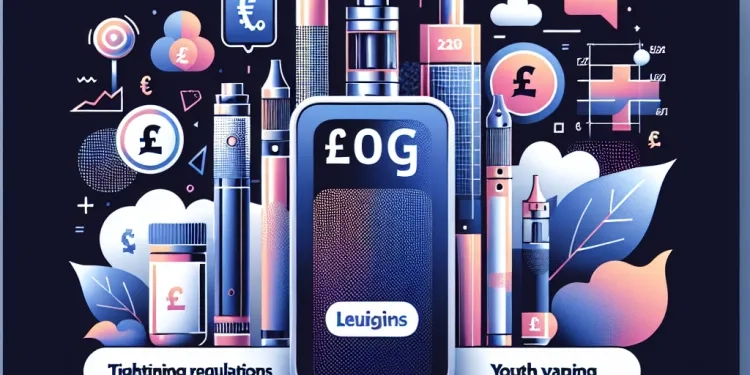
Rules on E-cigarettes to Tighten Amid Concerns Over Youth Vaping
Relevance: 63%
-

Tackling Youth Mental Health: Community Initiatives and Solutions
Relevance: 46%
-

Calls to Ban Vapes Near School Grounds Gain Momentum
Relevance: 44%
-

What is vaping and is it safer than smoking?
Relevance: 36%
-

Current Challenges in Youth Mental Health Services
Relevance: 33%
-

New Mental Health Strategy Launched to Address Youth Anxiety Epidemic
Relevance: 32%
-
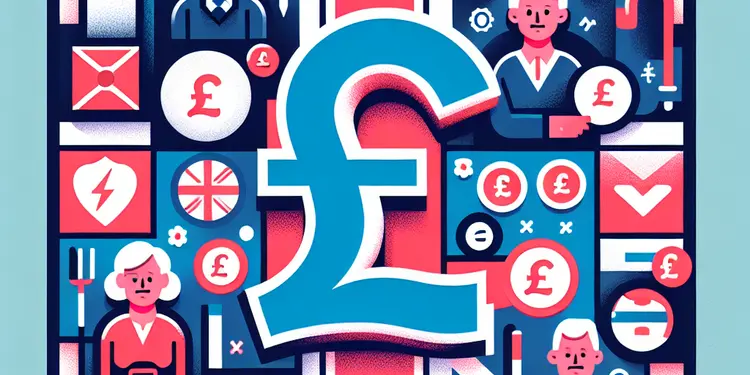
Are there educational opportunities for seniors?
Relevance: 24%
-

What age group is most at risk for grooming?
Relevance: 24%
-

Submitted Addressing Social Inequalities: Initiatives and Challenges in the UK
Relevance: 23%
-

What age groups are most at risk for concussions in rugby?
Relevance: 22%
-
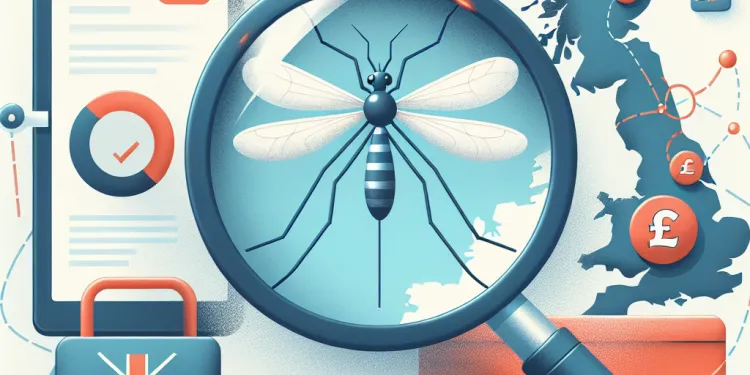
Are there any government initiatives to control mosquitoes in the UK?
Relevance: 22%
-

Are there any initiatives to reduce food waste in schools?
Relevance: 22%
-

Are there any government initiatives to tackle water loss in the UK?
Relevance: 21%
-

Are there initiatives to improve water efficiency in infrastructure?
Relevance: 21%
-

Who can initiate a product recall in the UK?
Relevance: 21%
-

Are there educational components to the school meal program?
Relevance: 20%
-
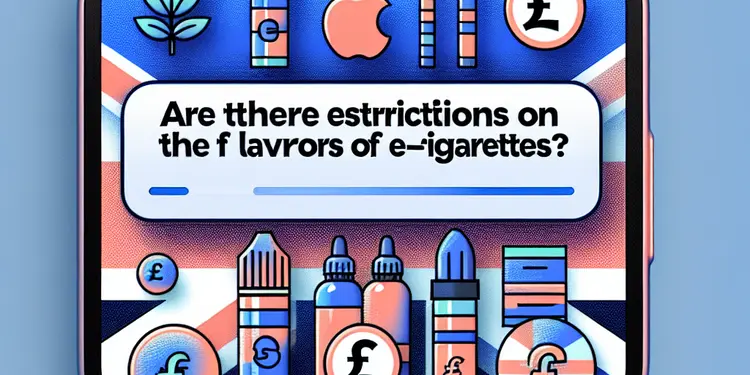
Are there restrictions on the flavors of e-cigarettes?
Relevance: 19%
-

What initiatives are in place to address banking fee transparency?
Relevance: 19%
-

Are there financial aids available for further education?
Relevance: 19%
-

Who should I contact to initiate my claim?
Relevance: 19%
-

What is an Education, Health and Care Plan (EHCP)?
Relevance: 19%
-

What are the risks associated with cannabis extract usage?
Relevance: 18%
-
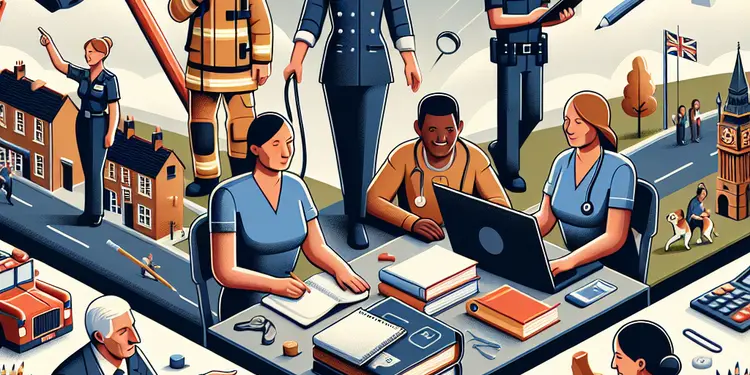
How can community helpers access educational resources?
Relevance: 18%
-

Skin cancer education
Relevance: 18%
-

NHS Unveils Revolutionary Mental Health Support Initiative
Relevance: 18%
-

Are there changes regarding advertising e-cigarettes?
Relevance: 17%
-

Efforts to Combat Antibiotic Resistance Gain Momentum with New Research Initiatives
Relevance: 17%
-

What age restrictions apply to purchasing e-cigarettes under the new rules?
Relevance: 17%
-

What are the basic educational requirements to become an NHS nurse?
Relevance: 17%
-

How does one initiate property litigation?
Relevance: 17%
-

Can you receive Universal Credit if you are in full-time education?
Relevance: 16%
-

Who is at risk of developing Alzheimer's disease?
Relevance: 16%
-

Are there any health risks associated with nicotine pouches?
Relevance: 16%
-

What training or educational programs are available for carers?
Relevance: 16%
-

How has the US's departure from WHO affected global health initiatives?
Relevance: 15%
-

Are new emerging pathogens a risk for blood safety?
Relevance: 15%
-
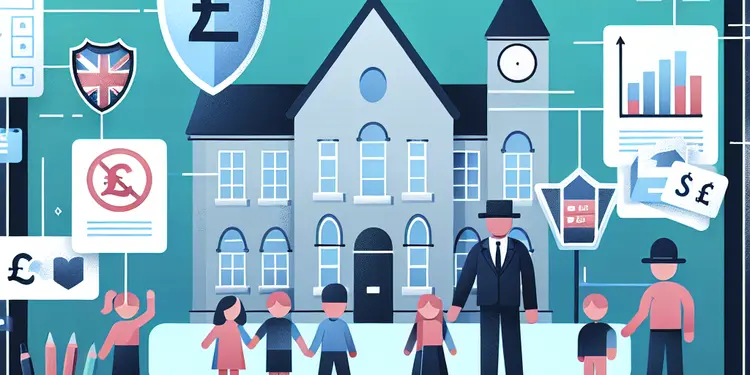
How can I educate my child to recognize grooming behaviors?
Relevance: 15%
-

Are there any risks associated with facelifts?
Relevance: 14%
-

What alternatives are being considered instead of a social media ban for under 16s?
Relevance: 14%
Government Campaigns
The UK government has launched several campaigns aimed at educating youth about the dangers of vaping. Through Public Health England, initiatives like the "Better Health" campaign provide resources and information actively targeting young audiences and their caregivers. These resources highlight the health risks associated with vaping and offer guidance on preventing youth uptake.
School-Based Education Programs
Educational institutions across the UK are integrating vaping education into their health and science curricula. Teachers are equipped with materials that cover the health implications of e-cigarette use, alongside traditional tobacco education. These programs are designed not only to inform students about the risks but also to develop critical thinking skills related to peer pressure and media influences.
Partnerships with Health Organizations
Collaborations between schools and health organizations, such as the NHS and various public health charities, have been crucial in disseminating information about vaping. These partnerships often result in workshops and seminars, where healthcare professionals provide firsthand insights and factual data about vaping effects and addiction risks.
Use of Digital Platforms
Recognizing the digital inclination of today’s youth, initiatives have increasingly turned to digital platforms to spread awareness about the risks of vaping. Social media campaigns, interactive websites, and educational apps have been developed to engage young people in their preferred spaces, delivering facts and real-life stories about the consequences of vaping.
Parental Involvement Programs
Understanding that parental guidance plays a role in shaping youths’ choices, several initiatives include programs designed to involve parents in the conversation. These programs provide parents with the knowledge and tools needed to discuss vaping with their children, aiding in creating a supportive home environment where open conversations about health and safety are encouraged.
Peer Education Initiatives
Peer-led education schemes are also being implemented, where young people are trained to reach out to their peers to discuss the dangers of vaping. This approach leverages the influence of peer networks to disseminate critical health information and foster environments where healthy choices are normalized.
Monitoring and Evaluation
To ensure the effectiveness of these educational initiatives, continuous monitoring and evaluation are conducted. Research institutions, in collaboration with educational bodies, assess the impact of these programs on youths’ attitudes and behaviors towards vaping, ensuring that strategies remain relevant and impactful.
Government Campaigns
The UK government is teaching young people about vaping. This means smoking electronic cigarettes. There are campaigns to help young people and their parents learn about the dangers of vaping. These campaigns show how vaping can harm your health and help you stay away from it.
School Education Programs
Schools in the UK are teaching students about vaping. They add this topic to health and science classes. Teachers have special materials to explain why vaping is bad, just like smoking real cigarettes. These lessons help students think carefully about peer pressure and what they see in the media.
Working with Health Groups
Schools and health groups, like the NHS, work together to teach about vaping. They hold workshops and talks where health experts explain vaping dangers. Students learn what vaping can do to their bodies and how it can lead to addiction.
Using Online Platforms
Because many young people use the internet, there are online tools to teach about vaping risks. Websites, social media, and apps show real stories and facts about what vaping can do. These tools help young people learn in a way they enjoy.
Programs for Parents
Programs are also made for parents to help them talk with their children about vaping. These programs give parents the right information to discuss health and safety. This helps families have open and honest talks at home.
Peer Education
Young people are also teaching each other about vaping. Some young leaders learn how to talk to their friends about the risks. This way, young people can help each other make healthy decisions.
Checking Progress
To see if these teaching methods work, experts keep checking how young people think and act about vaping. They study if these programs really help students understand that vaping is harmful and if they change their behavior.
Frequently Asked Questions
What educational campaigns are targeting youth regarding the risks of vaping?
Organizations and governments are launching multimedia campaigns to raise awareness about the health risks of vaping, using social media, television, and online platforms to reach teens effectively.
Are there school programs discussing the dangers of vaping?
Many schools have integrated vape education into their health programs, using evidence-based curricula to teach students about the potential health risks and addiction associated with vaping.
How are peer-led initiatives helping to educate youth on vaping?
Peer-led initiatives involve training youth ambassadors who then educate their peers, creating a relatable and impactful dialogue on the dangers of vaping.
What role do parents play in educating their children about vaping?
Parents are encouraged to have open discussions with their children and are provided with resources to help them effectively communicate the risks associated with vaping.
Are health organizations developing resources specifically for young people?
Yes, health organizations are creating and distributing brochures, videos, and interactive content tailored to young audiences to illustrate the health risks of vaping.
What digital tools are available to educate youth about vaping?
Several apps and websites are available that are designed to educate and support youth in understanding the risks of vaping, often including interactive elements and games.
How are government policies supporting youth education on vaping?
Governments are funding educational programs and research to provide comprehensive data and facts to schools and communities to better educate young individuals.
Are online influencers involved in vaping awareness campaigns?
Yes, influencers with significant youth followings are often engaged to spread vaping awareness messages, leveraging their platforms to reach a broad audience.
What role do healthcare professionals play in youth vaping education?
Doctors and healthcare professionals are participating in community talks, schools visits, and creating content to educate youth about the effects of vaping.
How do community workshops contribute to vaping education?
Community workshops offer interactive sessions for both parents and students, emphasizing the risks and providing personal stories about the consequences of vaping.
Are there any national observances dedicated to vaping prevention?
National health campaigns and specific days are dedicated annually to vaping education, with events that involve schools and communities across the country.
How are teachers trained to discuss vaping risks in schools?
Teachers receive professional development training which includes resources and strategies on how to effectively teach students about the dangers of vaping.
Are there documentaries or films that target youth about vaping concerns?
Documentaries and short films aimed at young audiences have been produced, portraying real-life stories to highlight the negative impacts of vaping.
What resources are available for students looking to quit vaping?
Various programs, hotlines, and support groups are available specifically designed to help youth quit vaping, offering counseling and motivational support.
How do social media platforms help in educating youth on vaping dangers?
Social media campaigns use popular platforms frequented by teens to distribute creative and engaging content aimed at warning about the dangers of vaping.
Are celebrity endorsements used in vaping prevention campaigns?
Campaigns sometimes include messages from celebrities who discuss the health risks and encourage youth to stay away from vaping.
What research initiatives are supporting youth education on vaping?
Research initiatives provide data and findings that inform educational materials and programs to keep them accurate and relevant.
How do anti-vaping clubs in schools work?
Anti-vaping clubs involve students who are passionate about spreading awareness, organizing events and sharing information with their peers.
Are there mentorship programs related to vaping prevention?
Mentorship programs pair youth with positive role models who educate and guide them on making informed decisions about vaping.
What role does international collaboration play in youth vaping education?
Countries and organizations collaborate to share successful strategies and resources, aiming to create a unified approach to vaping education worldwide.
What are schools and groups doing to teach kids about the dangers of vaping?
Here are some things that can help kids understand:
- Simple videos and pictures about why vaping is bad.
- Teachers talking about vaping in class.
- Fun games and activities to learn more.
Supportive tools:
- Use apps that explain vaping in a fun way.
- Read stories with easy words about saying no to vaping.
Groups and governments want to tell people about the dangers of vaping. They are making videos and pictures to share on social media, TV, and the internet to talk to kids and teens.
Do schools talk about why vaping is bad?
Lots of schools are teaching kids about vaping in their health classes. They use special lessons that show real facts to help kids understand how vaping can be bad for their health and how it can be addictive.
How do programs led by other kids teach young people about vaping?
Programs run by other kids are teaching young people about vaping. This means kids help each other understand vaping.
These programs can use simple stories and games to make learning fun. Young people might also watch videos or play group activities to learn more.
It's important because kids listen to each other and can learn better together.
If you want to learn more, you can use tools like picture charts or ask a teacher for help.
Peer-led projects mean young people help teach other young people. These young helpers learn first. Then, they talk to others about why vaping is bad. This makes the message clear and easy to understand.
How can parents help their children learn about vaping?
Parents can talk to their children about vaping. They can explain what vaping is and why it is not good. Parents can listen to their children's questions and answer them.
It can also be helpful for parents to set rules about vaping. They can say it is not allowed in the house.
Parents can show that they care by talking and listening. They can stay close and supportive.
Parents should talk openly with their children. They should discuss why vaping can be risky. There are tools to help parents talk about this.
Are health groups making resources just for kids and teens?
Health groups are making special things for kids and teens to help them stay healthy and happy. Would you like to use: - **Pictures and videos** that show how to stay healthy? - **Apps and websites** that are fun and easy to use? Looking at pictures, watching videos, and using apps are great ways to learn!Yes, health organizations are making and sharing brochures, videos, and fun things to explain the health dangers of vaping to young people.
What online tools can help kids learn about vaping?
Here are some helpful tools to teach kids about vaping:
- Videos: Watch fun and easy videos that explain what vaping is.
- Games: Play games that show why vaping might not be safe.
- Apps: Use apps that teach you about the risks of vaping.
- Websites: Visit websites made for kids to learn about vaping.
If reading is tough, you can try:
- Listening to audio books or recordings.
- Asking a grownup for help.
These tools can make learning about vaping easier and more fun!
There are many apps and websites to help kids learn about the dangers of vaping. They often have fun games and activities to make learning easier.
What are the government’s plans to help kids learn about vaping?
Governments give money to help schools and communities teach young people. They use this money to get good information and facts for learning.
Do people on the internet talk about vaping?
This question asks if people who are popular on the internet help others learn about vaping.
When you see people online talking about vaping, they might be trying to teach you more about it. These people are called influencers because they can help you make choices.
Some tools that can help you understand more are:
- Videos: Sometimes watching videos can make things clearer.
- Simple Stories: Reading short and easy stories can help you learn.
Yes, people with lots of young followers on social media are often asked to help share messages about vaping. They use their social media pages to talk to many people.
How do doctors and nurses help kids learn about vaping?
Doctors and healthcare workers are giving talks in the community. They are also visiting schools and making videos or posters. This is to teach young people about vaping and what it can do to your health.
How do group meetings help people learn about vaping?
Community workshops help parents and kids learn together. They have fun sessions that show why vaping can be bad and share real stories about what can happen if you vape.
Is there a special day to help people stop vaping?
Yes, there are special days to teach people about the dangers of vaping. These days help kids and adults learn why vaping is bad for health. There are events, posters, and information to help people make healthy choices.
Some ideas to help understand and spread the word:
- Watch videos about why vaping is not safe.
- Join a group at school or in your community that talks about health.
- Use simple printed guides with pictures to explain why not to vape.
Every year, we have special health campaigns and days to learn about vaping. These events happen in schools and communities all over the country.
How do teachers learn to talk about vaping dangers in schools?
Teachers need special lessons to learn how to talk about vaping dangers. Here are some ways they learn:
- Training Sessions: Teachers go to meetings to learn about vaping and its dangers.
- Guides and Books: Teachers read simple guides and books that explain vaping dangers.
- Help from Experts: Doctors or nurses talk to teachers about why vaping is bad for kids.
- Practice Talks: Teachers practice giving talks about vaping dangers in a safe place.
Tools like pictures and short videos can help make learning easier. Teachers get ready so they can help students understand why vaping is not good. If you find reading hard, using audiobooks or talking to someone can make it easier.
Teachers go to special classes to learn new things. They get resources and ideas on how to talk to students about why vaping is bad for them.
Are there movies or shows for kids about vaping problems?
Yes, there are movies and shows that tell kids about vaping and why it can be bad. These shows help kids learn how to say no to vaping.
You can find these movies or shows on TV, Netflix, or YouTube. Watching them with an adult can be a good idea. You can also ask a teacher or a parent to help you find these shows.
Movies and short videos for kids show real stories about why vaping is bad.
What can help students stop vaping?
Here are some things that can help:
- Talk to a teacher or school counselor. They can give advice.
- Find a support group. You can share your stories and get help.
- Use apps or websites for quitting. They give tips and track progress.
- Ask parents or friends for support.
- Try relaxation exercises, like deep breathing, to stay calm.
Remember, it’s okay to ask for help.
There are many programs, phone help lines, and groups that help young people stop vaping. These programs give advice and help to keep you motivated.
How do social media platforms help teach children about the dangers of vaping?
Social media platforms are tools like Facebook, Instagram, and TikTok. They are places where people share posts, pictures, and videos.
These platforms can help teach children about how vaping is bad for their health. They do this by:
- Sharing facts and information about vaping.
- Showing videos and stories of real people who have been harmed by vaping.
- Posting messages that remind children why it's important to stay away from vaping.
To make sure you understand, try:
- Watching short videos about vaping.
- Talking to a teacher or a parent if you have questions.
- Using apps that simplify reading and help you learn more.
Social media can help teach kids about the dangers of vaping. It uses fun and interesting content on platforms kids like to use.
Do famous people help stop vaping?
Sometimes, famous people talk about why vaping is bad for your health. They tell kids and teens not to vape.
How do different projects help kids learn about vaping?
Here are some ways to understand and learn:
- Look for simple books or videos about vaping.
- Use apps that teach about health in fun ways.
- Talk with teachers or friends to share ideas.
- Ask questions if you don't understand.
Research helps us learn new things. It gives us important information. This information helps make learning materials better and up-to-date.
How do anti-vaping clubs in schools work?
Anti-vaping clubs help kids say no to vaping. Vaping is when people use e-cigarettes. These clubs teach why vaping is bad for health.
The clubs have meetings where kids learn and talk. They do fun activities and make friends. They also plan events to share what they learn with others.
Some clubs have guest speakers who know a lot about health. They provide tips and tricks to stay healthy and avoid vaping.
If you want help, look for apps or websites that talk about vaping. Ask a teacher or parent for advice too. They can help you find more information.
Anti-vaping clubs are for students who care a lot about telling others why vaping is bad. They like to plan fun activities and share important facts with their friends.
Are there programs to help kids stay away from vaping?
Some programs can help you learn about the dangers of vaping. These programs may have mentors or guides who can offer support and advice. They help people understand why vaping is harmful and how to make good choices.
These programs can be helpful if you want to say no to vaping. They can also help you learn how to help your friends stay away from it, too.
Tools to help include talking with a trusted adult, joining school groups, or meeting with a mentor who knows about vaping dangers.
Mentorship programs match young people with helpful adults. These adults teach and guide them on how to make smart choices about vaping.
How do countries work together to teach young people about vaping?
Countries can work as a team to help young people understand vaping. They can share ideas, create helpful programs, and support each other. This teamwork can make it easier for everyone to learn and stay safe.
Using pictures, videos, and simple words can help explain vaping. A tool like pictures and video might help young people learn better.
Countries and groups work together. They share ideas and tools that work well. This helps them teach everyone about vaping in the same way everywhere.
You can use apps or tools that read the text out loud to help understand better.
Useful Links
This website offers general information and is not a substitute for professional advice.
Always seek guidance from qualified professionals.
If you have any medical concerns or need urgent help, contact a healthcare professional or emergency services immediately.
Some of this content was generated with AI assistance. We’ve done our best to keep it accurate, helpful, and human-friendly.
- Ergsy carfully checks the information in the videos we provide here.
- Videos shown by Youtube after a video has completed, have NOT been reviewed by ERGSY.
- To view, click the arrow in centre of video.
- Most of the videos you find here will have subtitles and/or closed captions available.
- You may need to turn these on, and choose your preferred language.
- Go to the video you'd like to watch.
- If closed captions (CC) are available, settings will be visible on the bottom right of the video player.
- To turn on Captions, click settings .
- To turn off Captions, click settings again.
More Items From Ergsy search
-

What initiatives are being taken to educate youth about the risks of vaping?
Relevance: 100%
-

Rules on E-cigarettes to Tighten Amid Concerns Over Youth Vaping
Relevance: 63%
-

Tackling Youth Mental Health: Community Initiatives and Solutions
Relevance: 46%
-

Calls to Ban Vapes Near School Grounds Gain Momentum
Relevance: 44%
-

What is vaping and is it safer than smoking?
Relevance: 36%
-

Current Challenges in Youth Mental Health Services
Relevance: 33%
-

New Mental Health Strategy Launched to Address Youth Anxiety Epidemic
Relevance: 32%
-

Are there educational opportunities for seniors?
Relevance: 24%
-

What age group is most at risk for grooming?
Relevance: 24%
-

Submitted Addressing Social Inequalities: Initiatives and Challenges in the UK
Relevance: 23%
-

What age groups are most at risk for concussions in rugby?
Relevance: 22%
-

Are there any government initiatives to control mosquitoes in the UK?
Relevance: 22%
-

Are there any initiatives to reduce food waste in schools?
Relevance: 22%
-

Are there any government initiatives to tackle water loss in the UK?
Relevance: 21%
-

Are there initiatives to improve water efficiency in infrastructure?
Relevance: 21%
-

Who can initiate a product recall in the UK?
Relevance: 21%
-

Are there educational components to the school meal program?
Relevance: 20%
-

Are there restrictions on the flavors of e-cigarettes?
Relevance: 19%
-

What initiatives are in place to address banking fee transparency?
Relevance: 19%
-

Are there financial aids available for further education?
Relevance: 19%
-

Who should I contact to initiate my claim?
Relevance: 19%
-

What is an Education, Health and Care Plan (EHCP)?
Relevance: 19%
-

What are the risks associated with cannabis extract usage?
Relevance: 18%
-

How can community helpers access educational resources?
Relevance: 18%
-

Skin cancer education
Relevance: 18%
-

NHS Unveils Revolutionary Mental Health Support Initiative
Relevance: 18%
-

Are there changes regarding advertising e-cigarettes?
Relevance: 17%
-

Efforts to Combat Antibiotic Resistance Gain Momentum with New Research Initiatives
Relevance: 17%
-

What age restrictions apply to purchasing e-cigarettes under the new rules?
Relevance: 17%
-

What are the basic educational requirements to become an NHS nurse?
Relevance: 17%
-

How does one initiate property litigation?
Relevance: 17%
-

Can you receive Universal Credit if you are in full-time education?
Relevance: 16%
-

Who is at risk of developing Alzheimer's disease?
Relevance: 16%
-

Are there any health risks associated with nicotine pouches?
Relevance: 16%
-

What training or educational programs are available for carers?
Relevance: 16%
-

How has the US's departure from WHO affected global health initiatives?
Relevance: 15%
-

Are new emerging pathogens a risk for blood safety?
Relevance: 15%
-

How can I educate my child to recognize grooming behaviors?
Relevance: 15%
-

Are there any risks associated with facelifts?
Relevance: 14%
-

What alternatives are being considered instead of a social media ban for under 16s?
Relevance: 14%


